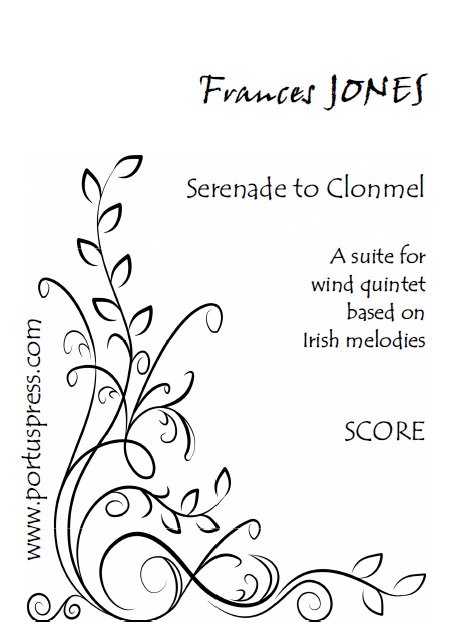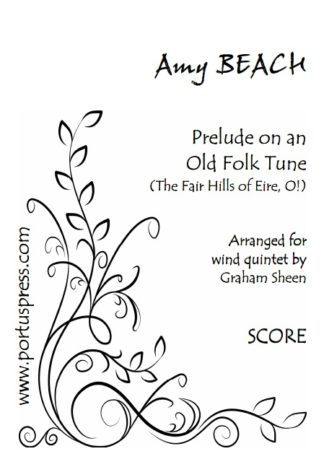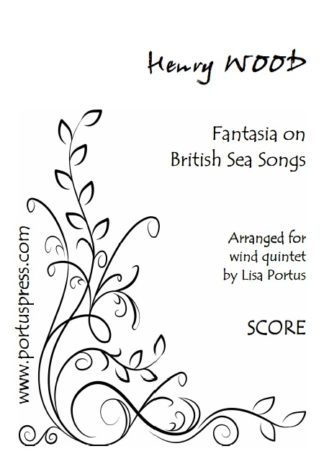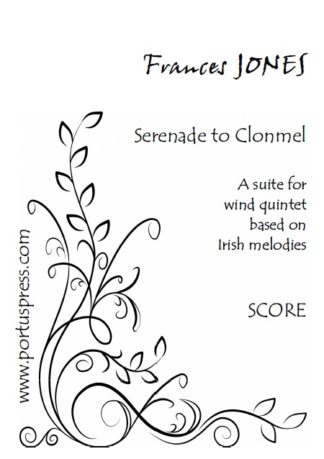Description
Reading in Berkshire is twinned with Clonmel, county town of Tipperary in the south of Ireland. As part of an ongoing project of cultural and social exchanges between the two communities, in the summer of 2000 the wind octet of the Reading Symphony Orchestra visited Clonmel to give some performances there. This Serenade to Clonmel was written for the occasion as a tribute to the rich musical heritage of the host country by Frances Jones, principal oboist with the orchestra. She has rewritten it here for wind quintet.
There are four movements, each based on an Irish melody. The suite begins with The Red-haired Boy (a.k.a.The Little Beggarman) with a peaceful depiction of the Irish countryside, but then is ramped up into a fast reel. Next is Brian Boru’s March. Brian Boru was one of Ireland’s most famous Celtic warrior chieftains, highly celebrated for defeating the first invaders of Ireland, the Vikings, in the Battle of Clonarf in 1014. In this movement the melody is used to portray Boru’s warriors as they appear in the mists in the distance, march close by and then on away out of sight towards the battlefield. With its haunting melody and heartfelt words The Londonderry Air (a.k.a. Danny Boy) is a song about love and loss: a lament for those missing home and each other – someday to be reunited. In the final movement medley The Irish Washerwoman, The Rollicking Irishman the music begins with a piper inflating his bag and getting the drones going before the jigs get going, finishing when the drones return and finally deflate.
In this piece the oboist has the lion’s share of the melodic lines – ideal if you’re looking for a piece that features the instrument. The horn and the bassoon parts have a few melodic moments but mostly play an accompaniment role in this suite.






